
Publicity statement
1.Purpose
In order to comply with the requirements of the Dodd-Frank Wall Street Reform and Consumer Protection Act and EU Regulation No. 2017/821, and to ensure that our company and its supply chain do not use conflict minerals, so as to safeguard the rights and interests of customers and fulfill social responsibilities, this statement is hereby formulated.
2.Scope
This statement applies to the control of conflict-free minerals in the raw materials and products of our company.
3.Responsibilities
3.1 Purchasing Department: When purchasing raw materials, select qualified suppliers and require suppliers to provide material composition tables, conflict-free mineral commitment letters and conflict mineral questionnaires.
3.2 Quality Department:
3.2.1 The SQE is responsible for collecting and storing the material composition tables, conflict-free mineral commitment letters and conflict mineral questionnaires provided by suppliers, and confirming whether the raw materials and products contain the four conflict metals of tin, tungsten, tantalum and gold.
3.2.2 During incoming material inspection, the IQC shall ensure that the incoming material suppliers have provided conflict-free mineral commitment letters and conflict mineral questionnaires.
4.Definitions
4.1 Conflict Metals: The four metals of tin (Sn), tungsten (W), tantalum (Ta) and gold (Au) are called conflict metals, abbreviated as 3TG.
4.2 Conflict Minerals: The mining of rare metals such as tin, tungsten, tantalum and gold in the Democratic Republic of the Congo and its surrounding countries and regions has caused serious human rights and environmental protection problems. Most of the mining activities in these regions are related to armed conflict organizations, leading to long-term instability in the region. Therefore, the four metals produced in these regions are called conflict minerals.
5.Process Description
5.1 Control of Conflict-Free Minerals
5.1.1 When selecting materials and changing materials, the R&D Department shall consider whether the selected materials contain conflict minerals, and require the Purchasing Department to find suitable suppliers to send samples for approval.
5.1.2 When selecting suppliers, the Purchasing Department shall convey our company's conflict-free mineral policy to the suppliers, and at the same time require the suppliers to comply with the conflict-free mineral regulations, provide the "Certificate of Non-Use of Conflict Minerals" and the "Material Composition Table". For all materials or products containing conflict metals, the suppliers are required to provide the conflict mineral questionnaires 《RMI_CMRT_6.4 & RMI_EMRT_1.3》, and the questionnaires shall be subject to the latest release of the RMI.
5.1.3 The QSE of the Quality Department shall confirm and file the 《Material Composition Table》, 《Certificate of Non-Use of Conflict Minerals》 and 《RMI_CMRT_6.4 & RMI_EMRT_1.3》 provided by the suppliers, and follow up on the submission progress of the suppliers who fail to provide the materials in a timely manner.
5.1.4 The QSE of the Quality Department shall evaluate and inspect the conflict mineral questionnaires 《RMI_CMRT_6.4 & RMI_EMRT_1.3》 provided by the suppliers, and confirm whether the survey results meet the requirements. If any non-conformity is found during the audit process, communicate with the suppliers and require them to make improvements until they meet the requirements, and the Purchasing Department shall fully assist.
5.1.5 If the results of the supplier's conflict mineral survey show the use of conflict minerals, the supplier shall be required to give a written explanation and stop the purchase immediately. The supplier must re-select a compliant source of minerals and provide effective evidence to prove that the new source of minerals meets the requirements, otherwise the qualification of the qualified supplier will be cancelled.
5.1.6 If the supplier is a 3TG smelter or refinery, according to the RMAP agreement, it shall provide the smelter identification number, fill in the smelter identification number and the company name in the 《RMI_CMRT_6.4 & RMI_EMRT_1.3》 and send it back to BARROT.
5.1.7 During incoming material inspection, the IQC and QSE of the Quality Department shall confirm whether the incoming material suppliers have provided the relevant required conflict-free mineral materials. Only after confirmation that the materials have been provided can the acceptance be carried out. For suppliers who have not provided the materials, if there are no other quality problems, the incoming material inspection results shall be handled as "pending" until the suppliers provide the conflict-free mineral materials that meet the requirements.
5.2 Our Company's Policy on Conflict Minerals:
5.2.1 Do not support or use metals from armed conflicts or illegal mining, that is, "conflict minerals".
5.2.2 Require suppliers to conduct due diligence in investigating the sources of metals such as tin, tungsten, tantalum and gold intentionally added to products, and ensure that the sources of these metals comply with the requirements of conflict-free mineral regulations.